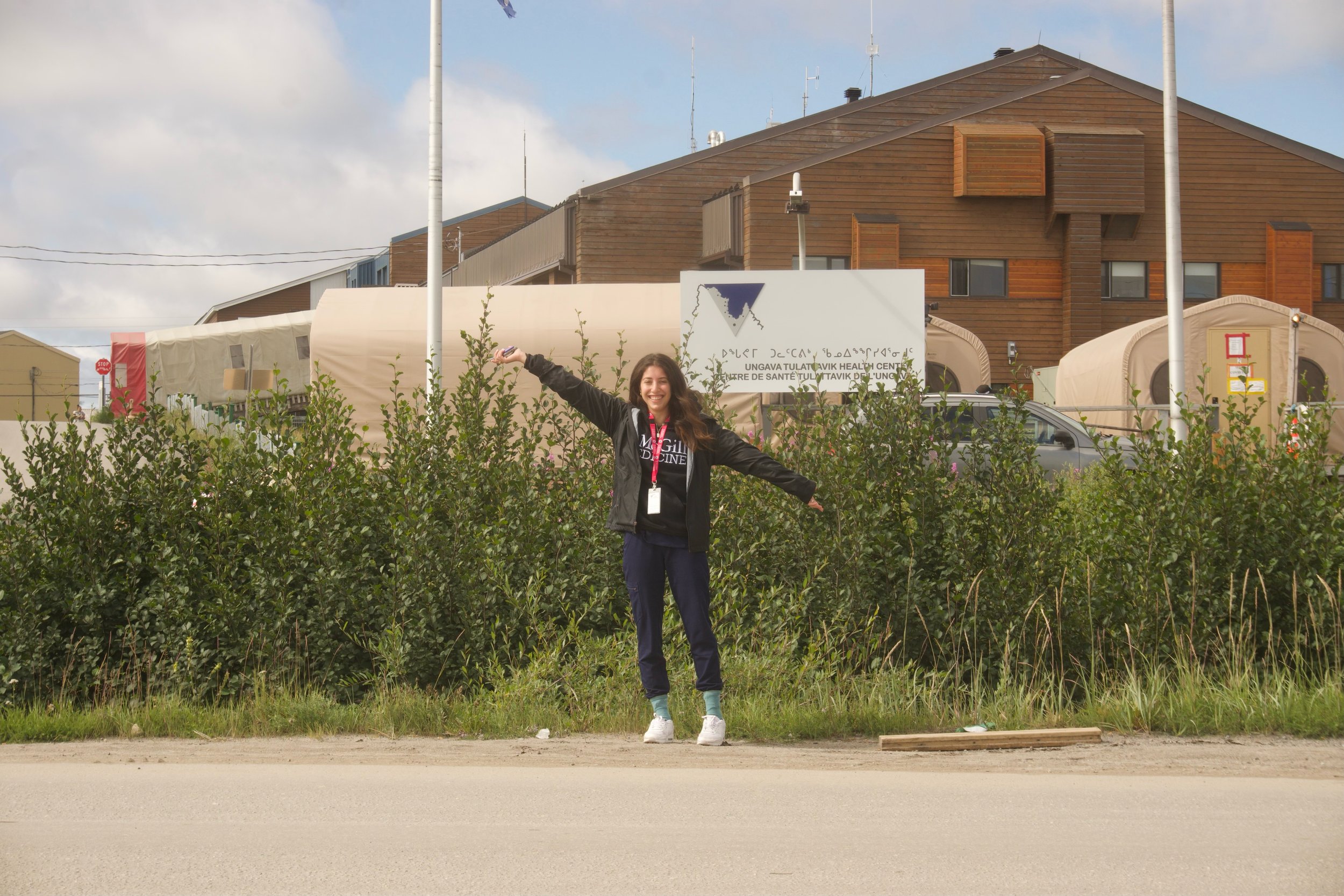Bridging Gaps in Indigenous Health: A Call for Equity and Respect
By Lilly Groszman
Spotlight award winner
This article is the winner of the inaugural Perspectives on Global Health Spotlight Awards in the category of Indigenous Health
The emergency room was buzzing with its usual hum of chaos. I was nearing the end of my last rotation of medical school—one of my final shifts in the Montreal General Hospital’s Emergency Room before stepping out into the world as a doctor.
My last patient of the day was a 23-year-old female from Nunavik who presented with vaginal discharge. She was in Montreal as an escort for her mother, who was undergoing cancer treatment, and took the opportunity to seek care for her discomfort. The case seemed straightforward. She had a history of pelvic inflammatory disease and a positive STI screening, so we prescribed the appropriate antibiotics. My attending then told me that I could discharge her.
But something felt off. As I approached her with the discharge prescription, I noticed a quiet unease in her eyes—a discomfort that lingered just beneath the surface, beyond words. I was preparing to gently explore this when my attending, whom I hadn’t realized had followed me into the room, abruptly asked if she had been sexually assaulted. The question hung in the air, sharp and unguarded, in the crowded ER where only a thin curtain offered a semblance of privacy. The hospital hierarchy made me feel too small to say anything. I was being evaluated by this staff—who was I to challenge someone with over 30 years of experience? But I went home, and the weight of my silence lingered.
I couldn’t shake the feeling that this might not have happened—or at the very least, might have led to more repercussions—if she weren’t Indigenous. It was a stark reminder that, in healthcare, the way we ask questions matters—especially when caring for populations who have historically been mistreated, misunderstood, and overlooked.
This experience was not an isolated incident. Throughout my medical training, I’ve seen how systemic inequalities facing Indigenous patients often go unaddressed. It took me back to my work as a Global Health Scholar (GHS). I had the opportunity to be a GHS at McGill twice—first in Nunavik, Northern Quebec, and later in Saint-Louis, Senegal. Despite the vast geographical and cultural differences, the disparities in healthcare felt familiar. But the contrast between these experiences was striking—primarily because of the healthcare workforce.
In Senegal, almost every healthcare worker I met was Senegalese. There was a sense of continuity, of care that came from within the community. It felt hopeful. But in Nunavik, the healthcare team was predominantly Quebecois. The care felt more like a patch—a temporary fix to a persistent problem. Instead of fostering a system where Indigenous communities could see themselves represented, it felt as if we were holding space, waiting for a better solution that never arrived.
I recognize that I am not Indigenous. My understanding of these challenges will always be limited by my own experiences. However, I firmly believe that every medical student and healthcare provider in Quebec should have the opportunity to work in an Indigenous community.
Indigenous peoples make up a significant portion of our patient population, and understanding their experiences firsthand is crucial to delivering culturally sensitive care.
My research aims to better understand trauma epidemiology within underserved communities and find practical ways to improve documentation practices and data collection. The goal is not just to collect data but to create a foundation for meaningful change. The only way to prove the need for change is to generate the evidence that demands it.
It is easy to think of health as a product of medicine alone, but true wellness is interwoven with cultural identity, community support, and respect for traditional practices. Throughout my medical training, I have learned that effective healthcare is not just about offering treatment but about listening, learning, and engaging with patients on their terms. In Indigenous communities, this means acknowledging the importance of traditional practices, providing care that respects cultural norms, and, most importantly, collaborating with Indigenous leaders to shape healthcare strategies.
The path forward is not a simple one. It requires systemic change, from the inclusion of Indigenous voices in healthcare policy to the adaptation of medical education to include Indigenous health perspectives.
As a future orthopedic surgeon, I am committed to challenging biases and to confronting the uncomfortable truths of our healthcare system’s history. It is not enough to treat illness; we must build systems that prevent disparities from persisting. By working together—with humility, openness, and respect—we can bridge the gaps and contribute to a healthier, more equitable Canada for all.
Lilly Groszman
is a fourth-year medical student at McGill University whose work lies at the intersection of improving clinical outcomes in surgery, global health, equity-driven medical education, and innovation. She has led and contributed to research projects across Northern Quebec, Senegal, and Canada, focusing on trauma care coordination, surgical planning, and expanding access to orthopaedic services in underserved communities. Passionate about mentorship, advocacy, and collaborative work, she will begin her residency in orthopaedic surgery at the University of Toronto this July, where she aims to build a career that bridges clinical excellence with social responsibility. She is the winner of the inaugural Perspectives on Global Health Spotlight Awards in the category of Indigenous Health.


